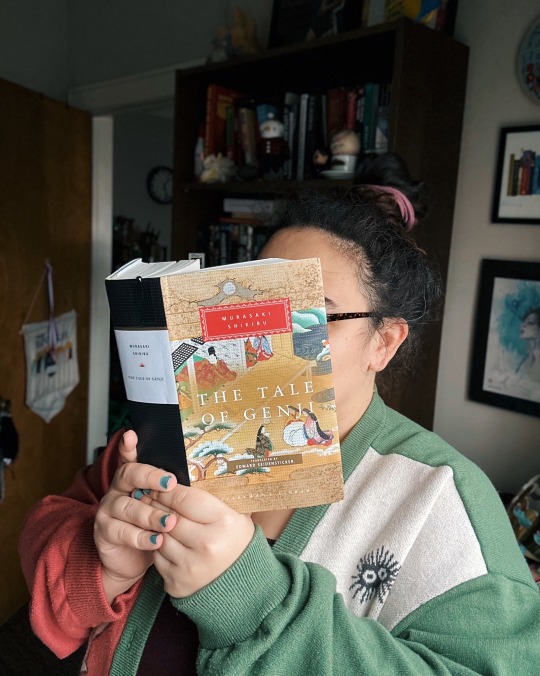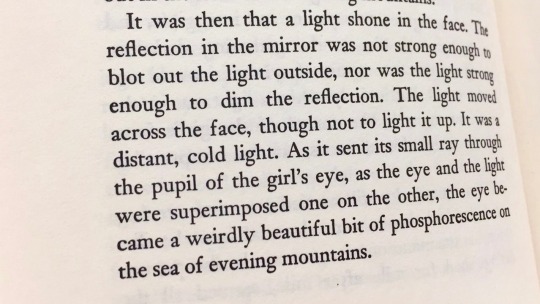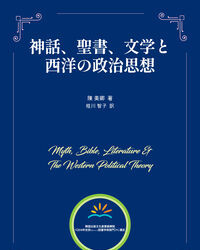#Edward G. Seidensticker
Text
The Monthly Gravette #24: THE TALE OF GENJI Finished
I began reading The Tale of Genji last July; I finished it in the wee hours of St. Patrick’s Day, making this the longest time I’d spent on any one book in a very long while. That’s only partly because it’s so very long (1,090 pages in the translation I read) and partly because, well, life got in the way; I was not always in the mood to delve back into a work so heavily steeped in the values of a…

View On WordPress
1 note
·
View note
Text
"'I may not have been able to love you, but I've been careful not to use you for my own pleasure.'
At that Misato broke into violent sobbing. 'I understand that--I'm even almost grateful for it. But I've wanted to be loved more than I have been, even if it meant being used.'"
Junichiro Tanizaki, trans. by Edward G. Seidensticker, Some Prefer Nettles
2 notes
·
View notes
Text

I’m still just getting my thoughts together on The Tale of Genji by Lady Murasaki Shikibu, translated by Edward G. Seidensticker, which was an epic that took me by surprise. Considered by many to be the first known novel, written in the early 11th century in Japan by a woman at court, this book is full of drama, wit, poetry, and messiness.
Genji is his father’s favorite. A beautiful, naturally charming prince, he is considered to be too good to be true—there was an idea that if too beautiful, you would be doomed to die early. His father is unable to name him crown prince due to court politics, and so he is a commoner at court, but one of tremendous influence. Genji is in love with love, and chases after women left and right—but is very serious about these affairs, making it a point not to abandon the women he seduces. It is a story of romance, intrigue, and growth.
One thing I was surprised by is the modern-feeling self-awareness of the text. Many analyses identify the 2nd protagonist, Kaoru, as possibly the first anti-hero, but I’d argue Genji is. Like many early mythic figures, he is loved by all but not without flaws. When he adopts (kidnaps) Lady Murasaki at a young age specifically to groom her into a future wife, the text does not shy away from how inappropriate it is. Characters disapprove, and the text is often cynical or wry about Genji’s choices. It does the same when Genji’s seductions turn coercive. It forgives Genji, but does excuse him, and that was something I did not expect from such an early text. This reflectiveness is part of what makes the book feel like a novel, rather than an epic poem of some kind.
#the tale of genji#murasaki shikibu#books in translation#classic literature#japanese literature#my book reviews#tale of genji
51 notes
·
View notes
Text

— Jun’ichirō Tanizaki trans. Thomas J. Harper and Edward G. Seidensticker, In Praise of Shadows
#so fucking beautiful. sighing dreamily#...like the thread from the great earth spider#🗣shadows confer solemnity🗣#my upload
52 notes
·
View notes
Text
“How, in such a dark place, gold draws so much light to itself is a mystery to me. But I see why in ancient times statues of the Buddha were gilt with gold and why gold leaf covered the walls of the homes of the nobility. Modern man, in his well-lit house, knows nothing of the beauty of gold; but those who lived in the dark houses of the past were not merely captivated by its beauty, they also knew its practical value; for gold, in these dim rooms, must have served the function of a reflector. Their use of gold leaf and gold dust was not mere extravagance. Its reflective properties were put to use as a source of illumination. Silver and other metals quickly lose their gloss, but gold retains its brilliance indefinitely to light the darkness of the room. This is why gold was held in such incredibly high esteem.”
—Jun'ichirō Tanizaki, trans. Thomas J. Harper and Edward G. Seidensticker, In Praise of Shadows
139 notes
·
View notes
Text
Full credits list for Literature Girl Insane
@venus-is-thinking and @accirax's Google Doc really started me off here, so shoutout to these two. I have NEARLY (update: it's now complete!) got a complete credits list for the video.
Below the cut is the full list of credits from 3:45:
ORIGINAL LITERATURE GIRL INSANE TEAM
Don (sound engineer)
Len Kagamine (incorrectly credited–this is a Rin Kagamine song)
karasuyasabou (original uploader)
Sayaka Siduki (illustrator)
Coleena Wu (English translation)
Yoppei (vocalist)
AUTHORS/COMPOSERS
Lewis Carroll (Alice’s Adventures in Wonderland)
Paul W. Chodas (The Collision of Comet Shoemaker–Levy 9 and Jupiter)
Agatha Christie (Murder on the Orient Express; And Then There Were None)
Osamu Dazai (The Setting Sun; The Flowers of Buffoonery; No Longer Human)
Julius Fucik (Entrance of the Gladiators)
Joseph Heller (Catch-22)
Motojiro Kaiji (Lemon)
Yasunari Kawabata (Snow Country)
Yumeno Kyusaku (Dogra Magra)
Ursula K. Le Guin (The Ones Who Walk Away From Omelas)
Kenji Miyazawa (Ame ni mo makezu)
Thomas More (Utopia––surname is incorrectly spelled as "Moore")
Plato (Six Great Dialogues)
Soseki Natsume (I Am a Cat)
Antoine de Saint-Exupery (The Little Prince)
William Shakespeare (Hamlet; Macbeth)
Sun Tzu (The Art of War)
Donald K. Yeomans (The Collision of Comet Shoemaker–Levy 9 and Jupiter)
TRANSLATORS
Kan-Ichi Ando (I Am a Cat)
Sam Bett (The Flowers of Buffoonery)
Alfred Birnbaum (Lemon)
Lionel Giles (The Art of War)
Benjamin Jowett (Six Great Dialogues)
Donald Keene (The Setting Sun; No Longer Human)
Edward G. Seidensticker (Snow Country)
David Sulz (Ame ni mo makezu)
18 notes
·
View notes
Text


from Snow Country by Yasunari Kawabata (translated by Edward G. Seidensticker)
3 notes
·
View notes
Text
2024年2月29日に発売予定の翻訳書
2月29日(木)には『平家物語』『陰翳礼讃』の英訳を含めると13点の翻訳書が発売予定です。
神話、聖書、文学と西洋の政治思想

陳美卿/著 桂川智子/翻訳
博英社
朝鮮時代ソウル都市史
高東煥/著 野崎充彦/翻訳 金子祐樹/翻訳
勉誠社
書い��ら燃やせ
シャロン・ジョーンズ/著 白浦灯/翻訳
海と月社
The Heike Story
Eiji Yoshikawa/著 Fuki Wooyenaka Uramatsu/翻訳
チャールズ・イー・タトル出版
In Praise of Shadows
Junichiro Tanizaki/著 Thomas J. Harper/翻訳 Edward G. Seidensticker/翻訳
チャールズ・イー・タトル出版
世界標準MIT教科書 アルゴリズムイントロダクション第4版 第2巻
T. コルメン/著 C. ライザーソン/著 R. リベスト/著 C. シュタイン/著 浅野哲夫/翻訳 岩野和生/翻訳 梅尾博司/翻訳 小山透/翻訳 山下雅史/著 和田幸一/翻訳
近代科学社
失敗のクィアアート
ジャック・ハルバースタム/著 藤本一勇/翻訳
岩波書店
グローバリスト
クィン・スロボディアン/著 原田太津男/翻訳 尹春志/翻訳
白水社
老人ホーム 一夜の出来事
B・S・ジョンソン/著 青木純子/翻訳
東京創元社
有名すぎて尾行ができない
クイーム・マクドネル/著 青木悦子/翻訳
東京創元社
最上階の殺人
アントニイ・バークリー/著 藤村裕美/翻訳
東京創元社
あなたの迷宮のなかへ
マリ=フィリップ・ジョンシュレー/著 村松潔/翻訳
新潮社
回復人 体中の細胞が疲れにつよくなる
アリ・ウィッテン/著 アレックス・リーフ/著 加藤輝美/翻訳
サンマーク出版
0 notes
Text
PLUS, ZIZZ!, GENJI and the Bomb: The Monthly Gravette #20
As always, a shout-out to Ben and Nate of Words About Books; you may find their own blog here.
I realize it’s been a while since the last “Monthly” Gravette post. No excuses, only reasons – and this time around, the reason (besides external pressures) is that from April to early July I was struggling with a certain book: Joseph McElroy’s Plus. Now, Plus isn’t a long book – at 215 pages, it’s…

View On WordPress
#Book Reviews#Books#cw grooming#Edward G. Seidensticker#Joseph McElroy#Len Lye#Murasaki Shikibu#Plus#Richard Rhodes#Roger Horrocks#The Making of the Atomic Bomb#The Monthly Gravette#The Tale of Genji#Zizz!
0 notes
Text
"One night as she lay in bed with the covers pulled up to her forehead, he heard her sobbing quietly; long into the night he lay staring into the darkness of the room, listening. It was not the first time he had been assailed by this sobbing in the night. A year or two after they were married, when he was beginning to withdraw from her sexually, he had often enough had to meet the same accusing evidence of the woman's wretchedness. He knew what it meant and he felt intensely sorry for her. At the same time he was conscious of being pushed farther from her; and, at a loss for a way to console her, he let the sobbing pass in silence... Gradually she seemed to accept her loneliness, however, and the sobbing stopped.
And now, after years of respite, it had started again... Why should she have started again? What case could she be pleading now? Had she never resigned herself at all, only waited for the day when his affection would return, and now, after years of waiting, found it impossible to wait any longer? What a fool the woman was, he thought; and as years before, he let the tears pass in silence. But night after night they continued. Quiet unable to find an explanation, he finally told her she was making a nuisance of herself."
Junichiro Tanizaki, trans. by Edward G. Seidensticker, Some Prefer Nettles
#oops! all relating to Junichiro Tanizaki#it Feels Bad (TM)#Junichiro Tanizaki#Edward G Seidensticker#Some Prefer Nettles
1 note
·
View note
Text

have been slowly chugging my way through The Tale of Genji by Murasaki Shikibu, translated by Edward G. Seidensticker. I started with the version pictured, which I bought in Japan, then paused, made an elaborate family tree/character chart (which was deeply necessary) and started from the beginning with the full, unabridged Everyman's Library edition. It's a gorgeous book and lowkey more readable than many of our much, much later classics.
Considered the very first novel ever written, published before 1021, Tale of Genji was written by a woman who had a place at the court in Kyoto. I purchased my copy in Tokyo, and then carried it with me throughout our visit to Kyoto, from the old Gion neighborhood and Shirakawa Lane to the golden temple Kinkakuji and gorgeous Arashiyama Bamboo Grove. I've always meant to dig into the first-ever novel, and I've been surprised by how accessible it is.
I'm now around 520 pages in, and taking a break to catch up on my other reading. Only 664 pages to go!
#the tale of genji#murasaki shikibu#women in translation#wit month#books in translation#japanese lit
28 notes
·
View notes
Text
"The quality that we call beauty, however, must always grow from the realities of life, and our ancestors, forced to live in dark rooms, presently came to discover beauty in shadows, ultimately to guide shadows towards beauty's ends."
— Jun’ichirō Tanizaki trans. Thomas J. Harper and Edward G. Seidensticker, In Praise of Shadows
52 notes
·
View notes
Text
“Have you never felt a sort of fear in the face of the ageless, a fear that in that room you might lose all consciousness of the passage of time, that untold years might pass and upon emerging you should find you had grown old and gray?”
—Jun'ichirō Tanizaki, trans. Thomas J. Harper and Edward G. Seidensticker, In Praise of Shadows
11 notes
·
View notes
Text

The Master of Go, 1985 by Yasunari Kawabata (translated by Edward G. Seidensticker)
0 notes
Text
“It must have been simple for specters to appear in a “visible darkness," where always something seemed to be flickering and shimmering, a darkness that on occasion held greater terrors than darkness out-of-doors. This was the darkness in which ghosts and monsters were active, and indeed was not the woman who lived in it, behind thick curtains, behind layer after layer of screens and doors-was she not of a kind with them? The darkness wrapped her round tenfold, twentyfold, it filled the collar, the sleeves of her kimono, the folds of her skirt, wherever a hollow invited. Further yet: might it not have been the reverse, might not the darkness have emerged from her mouth and those black teeth, from the black of her hair, like the thread from the great earth spider?”
— Junichiro Tanizaki, In Praise of Shadows, tr. Thomas J. Harper & Edward G. Seidensticker
#junichiro tanizaki#in praise of shadows#edward g seidensticker#thomas j harper#Japanese literature#japan tag#words#prose#2020 reads#mine
9 notes
·
View notes